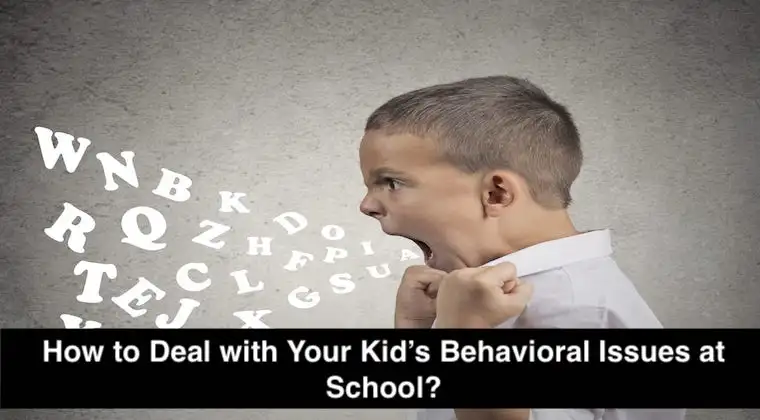+1 845 259 2974 (11 a.m to 7 p.m CST)
How to Deal with Your Kid’s Behavioral Issues at School?

A call from the school is always dreadful news for the parents. Parents start thinking of several ways their kid might have put them to shame in school. Poor academic performance is the first thing that comes to mind and poor behavior might be the last. But you never know what your kid is capable of unless you come across such a call from school. But no need to worry about that.
Discovering that your child is facing behavioral issues in school can be distressing. As a parent, your first instinct might be to react defensively. However, a more balanced approach can lead to better outcomes for your child, you, and the school.
No good outcome can come by being aggressive and defensive, instead you need to be calm and relaxed when it comes to handling such issues with your kid. Be sure that being angry won’t make your kid understand your intentions. Instead, you need to be smart about what you want and how you are going to manage that kid.
Let’s delves deep into understanding why these situations occur, the best way for parents to respond, and how modern tools, such as parental control apps, can be of help.
Initial Response
You just got a call from school informing you that your kid is not behaving well, and he/she is in trouble. What would you do right away? Let’s look in to several ways that you can use to give response in such situations:
- Stay Calm and Collected: Understandably, your immediate reaction might be one of concern, confusion, or even anger. However, it's essential to remember that this is an opportunity for constructive action, not just reactive emotion.
- Actively Listen: Before jumping to conclusions or laying blame, listen carefully to the concerns raised by the school. They are your partners in your child's education and growth. An open-minded approach will be more beneficial.
- Engage Your Child: After gathering information from the school, sit down and discuss the matter with your child. Approach the conversation with understanding and patience, ensuring they feel safe sharing their feelings.
- Formulate a Collaborative Action Plan: Together with the school, outline steps or strategies to address behavioral concerns. This might involve counseling, academic support, or creating a channel for regular communication between home and school.
Know the Reasons
Understand that everything that your kid is doing is because of something that they felt or did. Before you jump into conclusions, try to figure out the reasons leading to such behavioral issues.
- Attention-Seeking: At times, a child may feel overlooked both at home or school, leading them to act out to garner attention.
- Peer Dynamics: Children are influenced significantly by their peers. Sometimes, behavioral changes can be traced back to a child trying to fit in or succumb to peer pressure.
- Potential Learning Challenges: Behavioral disruptions can sometimes be an indicator of underlying learning disabilities. If a child is struggling academically, they might act out due to frustration or feeling overwhelmed.
- Home and Environmental Factors: Issues like family discord, moving to a new place, or even birth of a sibling can have profound effects on a child's behavior in school.
The Power of Parental Control Apps
Parental control apps, often viewed merely as monitoring tools, can play a pivotal role in helping parents understand and guide their children better. At first, you might not think such monitoring apps as helpful, but if you try them out, you will know how much these apps can assist in modern parenting.
Here is how parental control apps can help you understand your kids and figure out the situation:
- Monitor Digital Interactions: Such apps allow parents to keep an eye on who their children are interacting with, potentially identifying negative influences or cyberbullying.
- Setting Boundaries with Screen Time: Excessive screen exposure, especially before bedtime, can impact a child's mood, sleep, and concentration. Parental controls let you set limits to ensure a healthy balance.
- Guided Online Exploration: These apps can direct kids towards more educational and positive content online, reducing exposure to potentially harmful content.
- Creating Digital Awareness: By using these apps, you can teach children about the pros and cons of the digital world, making them more informed and responsible users.
While monitoring apps play an integral role in safeguarding children in the digital age, they should be implemented with care, respect, and understanding. By fostering open communication, prioritizing privacy, and focusing on education, parents can ensure a balanced approach that both protects and respects their child's independence.
Receiving a behavioral complaint from your child's school is undoubtedly a challenging situation. However, with a measured approach, an understanding heart, and the right tools in hand, it can be transformed into an opportunity for growth, understanding, and building stronger bonds.
Embrace the journey with patience, love, and the knowledge that every hurdle crossed will pave the way for a brighter academic and personal future for your child.





















